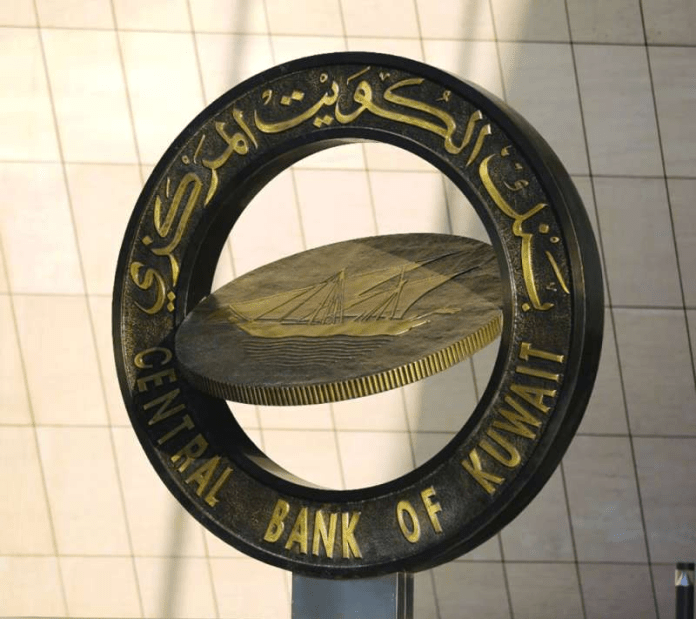While world markets are awaiting the US Federal Reserve meeting, scheduled to be held, September 21, where it is expected to adhere to the strict policy by raising interest rates and increasing it this time between 0.75 and one percent at once the Central Bank Governor Basil Al-Haroun will raise interest rates gradually even if it means violating the Fed policy and its Gulf counterparts.
In this regard, reliable sources told a local Arabic daily that the Central Bank of Kuwait seeks to maintain monetary and financial stability, and that this will be through a tight activation of a package of monetary intervention tools that, for its part, contribute to supporting the bank’s efforts and assisti the banking system units and depositors in addressing any opposite effects.
The sources indicated that the Central Bank is keen to manage its monetary policy in accordance with the requirements of local developments, indicating that its monetary policy and available tools give it a comfortable amount of independence, which it can employ to protect the economic sectors, and not burden the citizen by increasing the cost of borrowing.
The Central Bank recently adopted a gradual policy based on studying the impact on monetary and financial indicators, when raising the discount rate (the pivotal rate for lending agreements) in a way that enables the non-oil economy in Kuwait to continue its positive growth (the expected growth is about 8 percent for the current year), in a manner that does not lead to burdening the economic sectors with the burden of borrowing costs, or negatively affect the income available to the family sector by declining.
In general, the domestic monetary policy aims to enable all economic sectors to avoid the negative effects as much as possible, if large jumps in raising the discount rate are adopted, similar to some of the major central banks in the world.
The sources noted that the Fed is currently prioritizing inflation over employment, and even if this leads to the US economy entering a severe recession, which pushes it to raise interest rates more than expected, and the Fed may reach the peak of interest at its next meeting.
The sources stated that the Central Bank ably succeeded over the past period, according to the testimony of international institutions, in achieving the objectives of avoiding the negative impact on the economic sectors, and that this was evident during confronting the repercussions of the global crisis, and was able to maintain relative stability in local prices and economic growth.
The regulator, according to sources, is closely following global economic developments and the movements of major central banks to confront the historical rise in inflation rates in the world in the wake of the Corona pandemic crisis, whose repercussions were increased by the (Russian-Ukrainian) geopolitical developments that erupted last February.
The sources noted that the Central Bank of Kuwait closely follows developments in the global and local economies, and uses its available monetary tools, taking into account the peculiarity of the Kuwaiti economy, and will not hesitate to take monetary policy that ensures maintaining monetary and financial stability and the availability of necessary support for economic growth.
By not keeping pace with the Fed move, Al-Haroun since his appointment to date, has raised the discount rate by 75 basis points over 3 times, while the Fed has raised the US interest rate by 200 basis points over 3 times as well.
Were it not for this discrepancy, local banks would have continued to price borrowing to touch 8 percent, while it does not now reach 6 percent, and in the absence of this margin, the situation would turn out to be painful for individuals and productive sectors, and a negative influence.
Thus, the goal is to protect the economy in balance without harming any sector, including the banking sector, while contributing to the stability and continuation of growth, and activating the monetary policy tools competently.
There are a number of monetary and financial reasons that make the gradual policy of raising the discount rate more useful for Kuwait than following the Fed move as usual, and perhaps the most important of them are the following:
1 – Maintaining the positive growth of the non-oil sector, which has been negatively affected for 8 years and relapsed in light of the Corona pandemic.
2 – Strengthening the ability to employ, especially for Kuwaitis working in the private sector and small enterprises, whose number exceeds 70,000.
3 – Allowing the economy to re-grow to accommodate the government’s plans and projects, after severe damage inflicted by the Covid-19 pandemic.
4 – The income available to individual borrowers is not affected.
5 – Not to default on mortgages as much as possible.
6 – Mitigating the expected impact on the owners of residential plots under construction and in the future, amounting to 40,000 housing units whose owners have building permits.

















